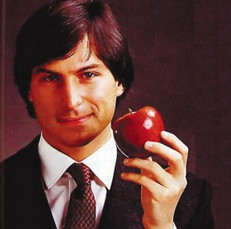“That’s right,” Jobs replied. Amelio took that response to mean that Jobs had not sold his shares, and he issued a statement saying so. But when the next SEC filing came out, it revealed that Jobs had indeed sold the shares. “Dammit, Steve, I asked you point-blank about these shares and you denied it was you.” Jobs told Amelio that he had sold in a “fit of depression” about where Apple was going and he didn’t want to admit it because he was “a little embarrassed.” When I asked him about it years later, he simply said, “I didn’t feel I needed to tell Gil.”
“没错。”乔布斯回答。阿梅里奥把这个答复理解为乔布斯没有卖出他的股票,于是发表了一个声明予以否认。可是直到证券交易委员会公布申报文件时,才发现乔布斯确实卖掉了他的股票。“该死,史蒂夫,我直接问过你,你说不是你。”乔布斯告诉阿梅里奥说,他卖股票是因为“一时对苹果该往何处去感到沮丧”,而他不想承认是因为他“有点儿尴尬”。多年以后当我问起他时,他只是说,“我不觉得我需要通知吉尔。”
Why did Jobs mislead Amelio about selling the shares? One reason is simple: Jobs sometimes avoided the truth. Helmut Sonnenfeldt once said of Henry Kissinger, “He lies not because it’s in his interest, he lies because it’s in his nature.” It was in Jobs’s nature to mislead or be secretive when he felt it was warranted. But he also indulged in being brutally honest at times, telling the truths that most of us sugarcoat or suppress. Both the dissembling and the truth-telling were simply different aspects of his Nietzschean attitude that ordinary rules didn’t apply to him.
为什么乔布斯要在他是否卖了股票的问题上误导阿梅里奥呢?一个原因很简单:乔布斯有时候会回避事实。哈特穆特·索南费尔德(HelmutSornienfeld)曾经这样描述亨利·基辛格:“他撒谎不是因为那符合他的利益,他撒谎是因为那是他的天性。”乔布斯生性就喜欢误导人,或者有时候故作神秘,只要他觉得有理由。而另一方面,他有时也会诚实得近乎残忍,讲出那些我们大多会粉饰或隐瞒的事实。撒谎和实话实说都只是他那尼采式的人生态度的两个侧面。一般规律对他不适用——












